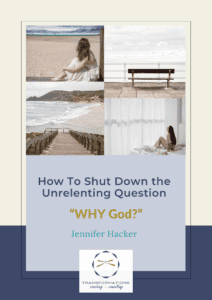Post Traumatic GROWTH – Real or Rubbish?
“We don’t learn and grow from things that are easy. We learn and grow from things that are hard.”
This is something I find myself saying to clients often. Sometimes it lands well. Other times not so much.
Author and speaker, Jeffery Olsen, muses about self-growth after loss in relation to his wife and son’s tragic deaths and his near-death experience following a car accident in his book, Knowing: Memoirs of a journey beyond the veil and choosing joy after tragic loss.
There, he poses this question: “What if there was a purpose in this madness? Would this refine me and teach me things I could learn in no other way?” He concludes that, “I had the opportunity to be made more whole by what I was here to experience.”
We could misinterpret his words to say that he’s glad this awful thing happened to his family since he calls it an ‘opportunity.’ But that would be short-sighted.
The opportunity is his choice, in the face of devastating loss, to persevere through seventeen surgeries—including amputation of one leg, and go on to live a fulfilling life and encouraging many people through sharing his story of hope.
I used to believe “pain brings purpose” … like it was an automatic thing that would happen over the course of time.
Now I’ve come to understand, like Jeffrey Olsen, pain brings awareness and it forces you to think more about, and CARE more about, purpose.
But pain doesn’t automatically result in purpose. You have to put in significant work for that to happen.
If you want to feel bad forever, deep pain and trauma will certainly provide you with an excuse. But pain combined with a sense of eternal awareness and things beyond self … that is where growth happens and purpose is born.
A few months after I read Jeffrey’s book I read an article and found there’s actual science behind our thoughts on pain and purpose.

The term Post-Traumatic Growth (PTG) was coined in the mid-1990s by psychologists Richard Tedeschi and Lawrence Calhoun.
Post-traumatic growth is a positive mental shift experienced as a result of trauma/adversity.
Even though I already knew this, I found it exciting to discover it’s a real thing backed by research.
I also found it exciting to know it’s not only my personal opinion, it’s a fact that the final word on loss is NOT a future filled with endless despair. You won’t be stuck in grief forever.
You can experience significant growth and positive change, not in spite of trauma but BECAUSE of trauma.
I realize this idea may not be especially comforting if you’re not THERE yet; and you’re living and surviving on auto-pilot. But at least you can have hope knowing what the future eventually holds.
The time will come when, because of your trauma, you’ll be able to:
- experience more profound joy, gratitude, and compassion than ever before
- be fully present and participating in your life
- have more intimate and meaningful relationships
- have a completely changed outlook and perspective on life
You may even find a new purpose in life. And that’s as real as it gets. Definitely not rubbish.





